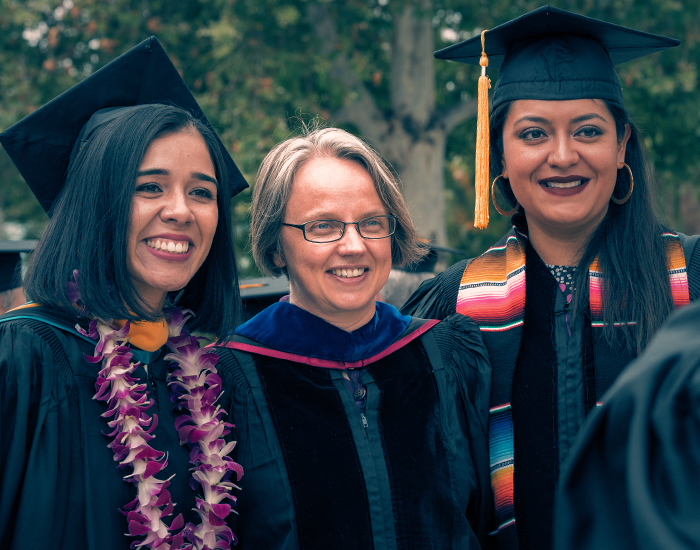This feature story originally appeared in the KGI Annual Report, which is linked here.
The most accurate way to diagnose infectious diseases is through nucleic acid testing, but this requires sending clinical samples to a central laboratory. Antigen-based tests can be used at the point of care to diagnose acute infections, but they are far less reliable. For example, antigen-based tests to diagnose chlamydia infections produce the correct result in just 30 percent of cases.
Angelika Niemz, the Chair of Business and Bioengineering for the Henry E. Riggs School of Applied Life Sciences and Arnold and Mabel Beckman Professor, sought a solution to this tradeoff. Backed by multiple grants from the National Institutes of Health, she worked to develop compact nucleic acid testing devices that would be easy to use in a doctor’s office or health clinic yet provide the same accurate results as central laboratory tests. Now KGI holds a U.S. patent for the technology Niemz and her research group invented for this purpose.
The patented technology enables a user to simply insert a clinical sample into a disposable cartridge resembling a home pregnancy test, then put the cartridge into a small inexpensive instrument, wait for a green light, and see the test results.
“It’s a platform technology, so you can test for a variety of diseases,” explains Niemz, who has focused on its effectiveness in diagnosing sexually transmitted diseases such as chlamydia and gonorrhea but notes that it would be equally useful in testing for dengue fever, the Zika virus, urinary tract infections, and respiratory diseases. “You can take different types of samples—blood, urine, swabs—and look at DNA and RNA.”
Another benefit of the technology, says Niemz, is the projected $50 price tag of the instrument required to run the tests. This is far lower than existing instruments costing from $9,000 to $45,000, plus annual maintenance and service charges.
“The patent is part of taking the technology from an academic exercise to something that can be commercialized,” says Niemz. “Our first goal is to get the technology into professional point-of-care settings."
"The big-picture goal is to have the device approved for home testing. We want to provide actionable results in the right setting at the right time.”
This objective has led the long-time KGI professor to take on the new role of entrepreneur. To bring the technology to market, Niemz has cofounded a company called Efyian with Hsiang-Wei Lu, a research assistant professor in her lab who holds a PhD in mechanical engineering.
“Hsiang-Wei is the engineering mastermind behind the technology and director of research and development for the company,” says Niemz, who is serving as Efyian’s president while remaining a KGI faculty member. “We complement each other well because we have tenacity in different aspects.”
Yet Lu had never anticipated becoming an entrepreneur, saying, “I didn’t think I had the makeup to be a businessman. But my father was an entrepreneur who told me the path drawn by other people is not worth taking.”
For Niemz, launching a company represents a new challenge. The tasks she and Lu will need to complete successfully include raising money from investors and scaling manufacturing of the product at a low cost and suitable quality.
As Niemz and Lu have moved from a campus lab to the helm of a company, they have included many others at KGI. Assistant Professor Anna Hickerson and Kristina Roskos, PhD ’13, contributed to the earlier stages of research. Current PhD student Abrar Al Maghribi, MS ’18, is involved. Jim Osborne, the Robert E. Finnigan Professor of Applied Life Sciences at KGI, serves on Efyian’s advisory board. Students from KGI, The Claremont Colleges, UC Berkeley, and Southwestern Law School have also participated, working on the technology and business aspects of the project.
“We’re fulfilling KGI’s mission of translational research, providing a training opportunity for students who can learn new skills and gain experience, and creating intellectual property that will help KGI grow,” says Niemz.
